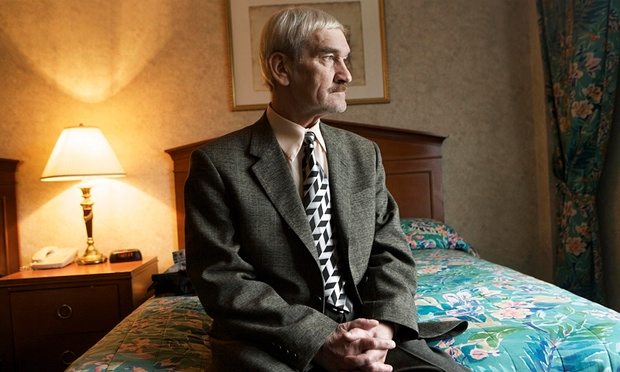
 Like any documentary based on the past, The Man Who Saved The World has to decide whether to incorporate recreated elements and switch between them and the talking-heads segments, or stick exclusively to the latter. Director Peter Anthony decided to recreate the most immediate, unnerving moments to give the film a meaty mid-section that resembles a cold-war thriller, and pulls it off successfully. Despite the acted heroics therein, the film’s real hero remains General Stanislav Petrov - a Soviet military officer who saved the world from total annihilation by nuclear war with the United States one evening in 1983. The introduction does well in conveying the serious, grim tone, and prepares us for Petrov’s stoic, tortured psyche.
Like any documentary based on the past, The Man Who Saved The World has to decide whether to incorporate recreated elements and switch between them and the talking-heads segments, or stick exclusively to the latter. Director Peter Anthony decided to recreate the most immediate, unnerving moments to give the film a meaty mid-section that resembles a cold-war thriller, and pulls it off successfully. Despite the acted heroics therein, the film’s real hero remains General Stanislav Petrov - a Soviet military officer who saved the world from total annihilation by nuclear war with the United States one evening in 1983. The introduction does well in conveying the serious, grim tone, and prepares us for Petrov’s stoic, tortured psyche.
These days, Petrov lives alone in a modest Russian home. His wife died of cancer long ago, and he spends his time drinking, smoking, and avoiding the phone calls of eager journalists. “We must forget the past”, he says many times throughout the film, as his eyes look off into the distance. Nonetheless, he accepts an invitation to appear at the United Nations in New York to be ceremoniously awarded and publicly thanked. He finds out the night before that he is to give a small speech, and his translator - a young Russian girl - has to endure his violent tirades and emotional outbursts at times like this. He doesn’t enjoy grandstanding, or reflecting on his past.
The film includes news footage of President Reagan warmongering against the U.S.S.R., and footage of Soviet officials warmongering against the U.S. There’s voice-over narration sprinkled throughout that warn of making “one wrong move”, and that eventually “it will happen. Sooner or later, it will happen”. We’re treated to military footage of nuclear tests, leveling test-site landscapes. Horror, is the visual language throughout. There would be total chaos and horror. The end times.
While the reenactments don’t have much tension (as we’re all fairly certain nuclear war didn’t occur), they’re shot well and bolstered by tremendous acting. There’s a road trip element to the second half, as Petrov and his translator, journey through America to meet Kevin Costner, who graciously invites Petrov to his home. On-set of Costner’s current project, he delivers a speech on heroism and humanism that almost equals those of his films. The documentary is oftentimes sad, reflective, and a realistic reminder of the insanity and danger we find ourselves in, and how this could all end in a few minutes. Anthony does a good job of reminding us that it's people like Stanislav Petrov who let us keep evolving.